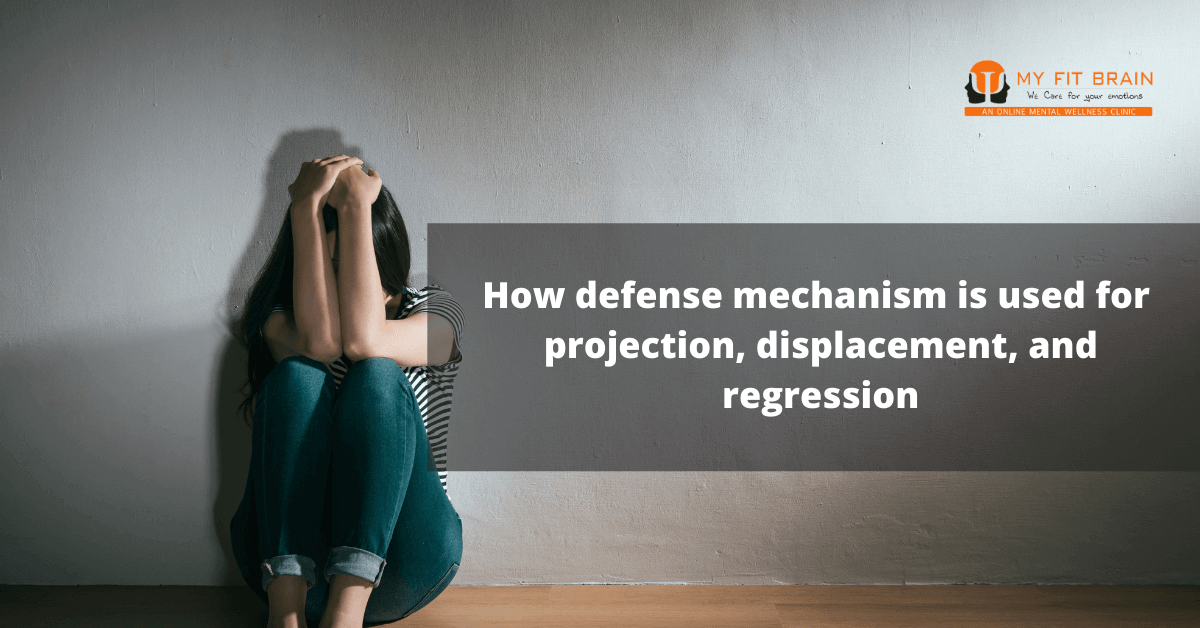Package of 5 Sessions
- Rs.5,999.00/-
Today Defense Mechanism is identified as an unconscious force that protects an individual from anxiety and guilt. They are learned by children when they are small, which are primitive ways of coping.
 Nisha Ravishankar
Nisha Ravishankar  01 Apr 2021
01 Apr 2021  Depression
Depression  3.8k Reads
3.8k Reads  5 min Read
5 min Read 
Nature protects us as human beings in the most profound of ways. The way the person reacts to situations differentiates him/her into a mature or immature person.
Did you know that there are natural and normal psychological strategies that can protect a person from unpleasant thoughts and feelings they are called defense mechanisms- Sigmund Freud, the father of psychoanalysis coined this term in 1874. He identified these as strategies that we use to protect ourselves from suffering. Earlier it was used to describe and explain abnormal behavior expressed by psychotic patients.
Today Defense Mechanism is identified as an unconscious force that protects an individual from anxiety and guilt. They are learned by children when they are small, which are primitive ways of coping. When they are yelled at for misbehaving or not doing their homework, they might go and pinch their sibling or shout at their playmate for no reason. The brain waves and emotional connections are still developing for a child. They yet to learn how to self-regulate their emotions. These superficial adaptive behaviors do not work for an adult.
The common defense mechanisms used by people at times of confrontation and conflict are projection, displacement, denial, repression, and repression. There are called immature mechanisms which are automatic and reactive. People do not realize it. But when it is used often it will affect close relationships. There is a link between overuse of these mechanisms and high anxiety. This leads to anger issues and depression in the long run.
Take a look at this example: “You fear disappointment from your parents. You are performing poorly at college. When you are confronted by your parents, you tell excuses that portion was done last minute or the teacher does not teach well. You blame the educational system and do not own up to the responsibility. You cannot tolerate the loss of self-esteem arising from the failure.”
If you find yourself procrastinating and finding fault in the actions of others, then you are projecting your dislikes and unacceptable behavior on others. It is an escapism tactic, but you will lose trust and integrity in the long run. It is ok to be aware of what your shortcomings are and take help from a mental health professional to achieve your set goal at your pace.
Take a look at this example: “You had a tiring day doing your chores and taking care of your kids. You have not got time to sit down and rest. You notice your young one spilling milk on the floor and her dress. You had enough and scold her for making a mess. This is called displacement where you cannot deal with unpleasant feelings and you show your anger and frustration towards the other person.
But if you find yourself as an adult flaring up at people for no reason, then it is time to do a reality check, You can ask the question: How often do you do that? If it is done daily, then you need emotional support. This can be aided by counseling.
Take a look at this example: “You come to know from your company that your performance is not up to the mark and you may lose your job. You come home and pretend that all is ok. You refuse to accept reality. You will want to distance yourself and try to paint a picture of normalcy. That is denial.
The problem is when you do not take accountability and the family is unaware of the mental stress you put yourself in. Sometimes the pain and disturbing thoughts get buried into the subconscious that you outright deny any such incident.
That is repression. Regression is when you brood, lose interest in your appearance and wait for your spouse or parent to care for your whims and fancies. You are yet to come to terms that you might lose your job and the reality is in stark contrast to the treatment you get at home.”
Depending on how deeply an experience has been buried in your subconscious, this one can be difficult to spot. However, there are some symptoms you need to pay attention to, such as angry outbursts that are not proportionate to the trigger, nightmares with repetitive themes, and feelings of depression or anxiety that seem to come out of nowhere.
It takes a lot of courage to ask for help from a therapist. But you get an opportunity to relook your choices in a safe and unbiased environment. You can spare the harmful effect on your family and loved ones. You will feel that there is nothing wrong with getting upset or angry once in a while.
But if you find that remarks you pass hurt people or you distance yourself from people around then you need to be aware that mechanisms you have are not working for you. You can approach a therapist or counselor who will teach you assertive and confrontation skills to deal with uncomfortable situations.
With their guidance and non-judgemental approach, you will become aware of repetitive patterns of reactivity towards people in general. Friends and family members can also help you recognize the mechanism.
You will learn how to self-regulate your emotions. It gives room for privacy and confidentiality to deal with your issues. Your self-esteem gets a boost and you can rework communication and interpersonal ties with a new sense of confidence.


A breakup can feel like the ground has slipped from beneath your feet. Whet...
 14 Nov 2025
14 Nov 2025  5 min Read
5 min Read 73 Reads
73 Reads _1762843452.jpg)

A breakup can feel like the end of the world. Whether it’s a long-term re...
 11 Nov 2025
11 Nov 2025  5 min Read
5 min Read 131 Reads
131 Reads 

Children feel emotions just like adults -- they only communicate them diffe...
 10 Nov 2025
10 Nov 2025  5 min Read
5 min Read 105 Reads
105 Reads 

Families are living ecosystems. When one component is impacted and the enti...
 06 Nov 2025
06 Nov 2025  5 min Read
5 min Read 159 Reads
159 Reads 

_1762843452.jpg)


_1762843452.jpg)

